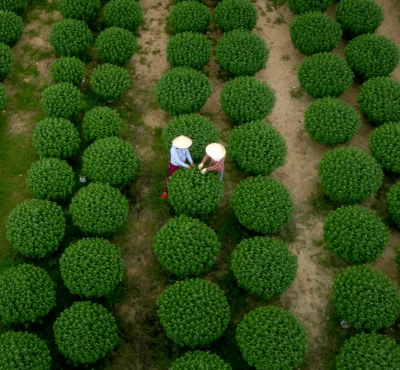Our Solutions
Climate Smart Farming
In our solutions to Climate-Smart Farming, we transform farming into green and climate- resilient practices. Some of the practices include improving soil health, understanding landscape patterns to develop crop patterns according to calorie requirements, mapping the topography for planning required water usage, and studying weather patterns for climate actions. The climate smart growing approach is now promoted more to guide actions to transform agri-food systems to lower greenhouse gas emissions and to improve awareness on climate actions. We are constantly working on models and research in identifying solutions that can be adopted without much financial implication and also studying revenue changes in the course of transforming the growing methods. Our solutions are a combination of measures that improve food production and increase supply chain efficiency.

Digital Circularity

We develop metrics for sustainability and capture emissions using data and science-based targets to achieve circular productivity. By integrating information and systems to gather data across the production of food, our Digital Circularity tool analyzes the existing pattern of production and delivers solutions to achieve sustainable outcomes. We provide technical assistance to conservation projects, individual farmers, or farmer producer organizations to address the challenges in conservation practices and/or climate-smart agriculture. The digital tool monitors and delivers information for the technical service providers to improve growing methods, measure emissions and track the measures of sustainability. This has exclusively supported food producers who are doing cooperative farming and creating products that can meet the quality requirements of local markets and export.
Clean Goods
We are creating brands that can add value to nature and consumers certified as Clean Goods. Through research and product development, we aim to improve growing methods by supporting our farmer community to adopt solutions that reduce the carbon footprint in food production and support biodiversity in creating those goods. Clean Goods can be climate-positive products that help farmers transition to regenerative farming, while consumers are able to buy products that have positive effects on the health of the planet and humans. It is a collaborative project with participation from various actors in the agriculture value chain while enabling transparency through digital records and certifications. These are not completely new growing processes but more about creating a balance between producing and consuming food. Clean Goods are produced by supporting growers with easy-to-implement methods and create an ecosystem for improving marketing of these foods. For food consumers, the clean goods label makes such foods and farming practices more visible and enables them to make decisions in supporting climate actions.

